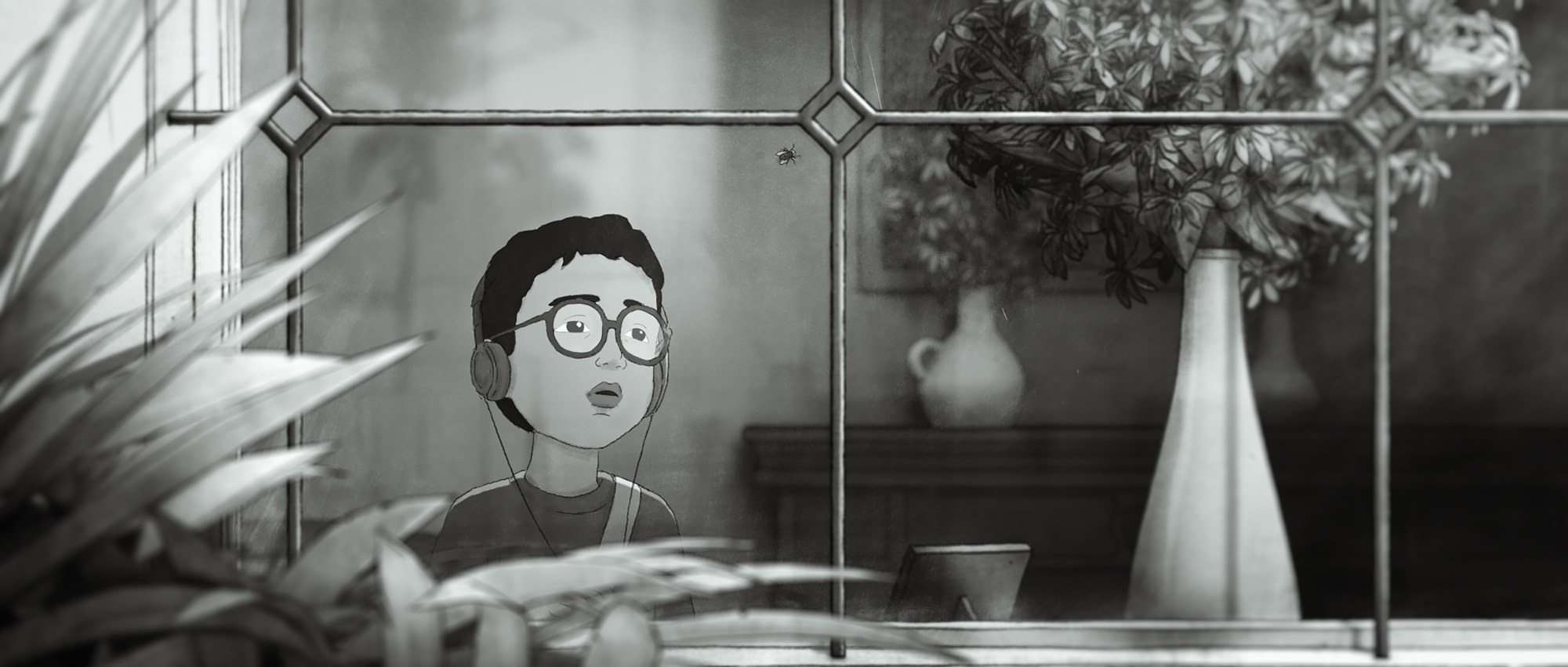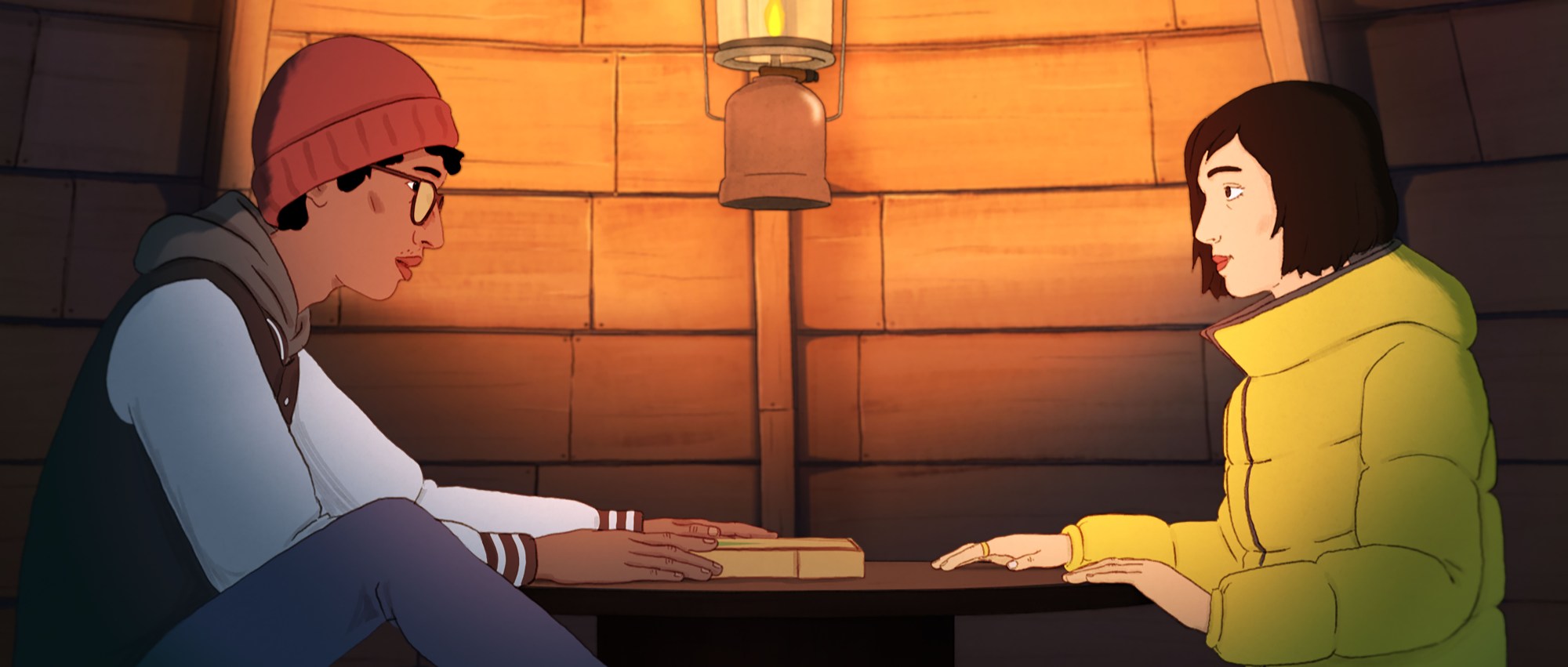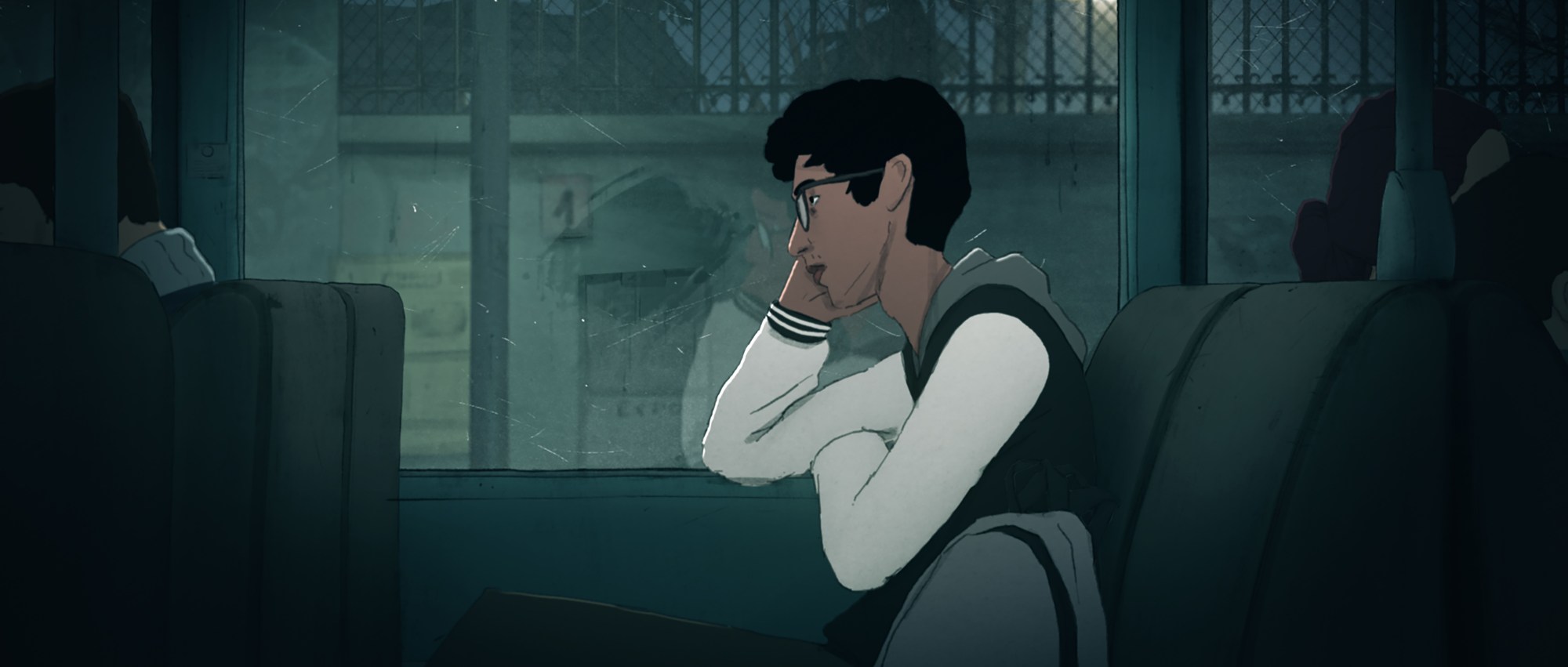Standing on the rooftop of a Paris high-rise doesn’t guarantee you a postcard view of the Eiffel Tower. Romanticised visions of the French capital on screen might tell you something different, but even Guillaime Laurant knows that’s not the case — and he’s one of the people responsible for its framing as a chocolate box city in the first place.
18 years ago, Guillaume wrote Amelie, the classic Jean-Pierre Jeunet film that stripped Paris of all of its gritty realism and painted it as a dreamy and idyllic place for true romantics to fall in love with. Since then, most Hollywood movies about the city have ran with his vision. His next story could help dismantle it.
Enter I Lost My Body, the cinematic version of his 2006 book about a hapless pizza delivery boy falling for a mysterious young woman in Paris while, down in the sewers and streets, a severed hand escapes a laboratory and desperately scours the city for its body. “This is not like Amelie,” he assures i-D. “This is dark Paris. The true Paris.”
Set in the early 90s, the film’s dual narratives grapple with ambiguous issues of class and human connection through its two very different leads. The pizza boy is Naoufel, a Moroccan immigrant who, having been orphaned as a child, spends his time between his overbearing job and living with his Lothario-like cousin in the city’s suburbs. Meanwhile the hand, crawling across the city, is also trying to find safety and contentment while exposed to hungry vermin and the hustle and bustle of traffic, trains and garbage trucks. The end goal, for each of them, is always just slightly out of reach.

Naoufel’s existence as an immigrant isn’t the centrepiece of the story, as is so common with characters like his, particularly in French cinema. Four years ago at the Cannes Film Festival (where I Lost My Body premiered and won the Critics’ Week Grand Prize this year), the Jacques Audiard film Dheepan — also set in the Paris suburb s — told the story of a Sri Lankan immigrant rebelling against the xenophobic society he’s wound up in. It was an extremist piece of cinema that felt like a simplistic and knee-jerk response to the influx of migrants crossing the Atlantic at the time. It mishandled the intentions of those making those journeys.
Instead, I Lost My Body simply uses Naoufel’s background as a way of fleshing out of his character, rather than using it as a means of exploring his position in society. He lives a life shaped by other things instead. “Even though he is an immigrant, the depiction of his journey has nothing to do with the way people discuss immigrant’s problems,” the film’s producer Marc Du Pontavice says. “He’s a boy struggling to find his way through life after a trauma. We don’t corner ourselves with the fact that he’s an immigrant.”
Instead, the main thing on Naoufel’s mind is Gabrielle, a girl who he fatefully meets one night as he rushes around the suburbs delivering pizza. Jaded by how rude and dismissive most of his customers are, Naoufel spends a whole rainy evening talking to the charming Gabrielle through the intercom in her building, never meeting face-to-face, until he eventually tracks her down. It’s at this point the story takes a strange twist, as Naoufel embeds himself into her life without her knowing. The extent of his infatuation for her bordering on stalking. It throws up interesting questions in terms of power play and control, but Marc is keen to point out that “he’s the shy one and she’s the one with confidence”.

The whole thing unfurls like a puzzle the viewer has to solve as it hurtles towards its final climactic moments, as we try to make sense of the connection between Naoufel and the hand that often shadows his own movements. “When you have this kind of subject, you have to show the story in a way that isn’t just serving a purpose,”director Jérémy Clapin tells us. “It’s a world of different pieces trying to be reunited, and so the story had to be interesting, but so did the way we told [it].” It starts on two opposite poles, introduces a point of conflict (in the form of Gabrielle) and weaves their life stories tightly together in a manner that keeps you guessing. “From the beginning of having two stories going simultaneously is a huge challenge because you need to keep the viewer’s attention as you go from Naoufel to the hand and vice versa,” he adds. “It’s even harder in animation, because you produce what you’ve storyboarded, you don’t have the opportunity to shoot [B-Roll and extra takes].” It has all of the cinematic ingredients of a scintillating thriller, and handles them with such confidence that you often forget it’s animated in the first place.
This is the first time an animated feature has won the Cannes Critics’ Week Prize since it started in 1962, and is a shining testimony to how the medium — particularly the hand-drawn kind — still harbours the power to move audiences. For some people, that aspect of it might turn them off. Movies like this are often dismissed. Those who made it know it’s an interesting preconception to go up against, particularly now that there’s a strong likelihood they will be earning an Oscar nomination for it come awards season next year. “For us, this film might be the new departure for animation where anyone who wants to tell a story [this way] doesn’t have to justify why,” Marc says. He points out the beautiful tapestry of movies Studio Ghibli and anime studios in Japan make: “[They] have no problem addressing adult stories through animation,” he shrugs.
What Jeremy, Marc and Guillaume might do is breathe new life into Western animation, taking us away from factory-made 3D movie franchises to soak up some of that much needed Ghibli-esque spirit instead. As you watch these characters ascend from the grotty gutters to the freedom of the rooftops — looking out across a real Paris — you realise that beneath I Lost My Body’s steely exterior lies a unique and complicated heart. And whether you love or loathe the hand drawn medium, you’ll struggle to resist its narcotising lure.
‘I Lost My Body’ is in select cinemas on 22 November, before hitting Netflix on 29 November
